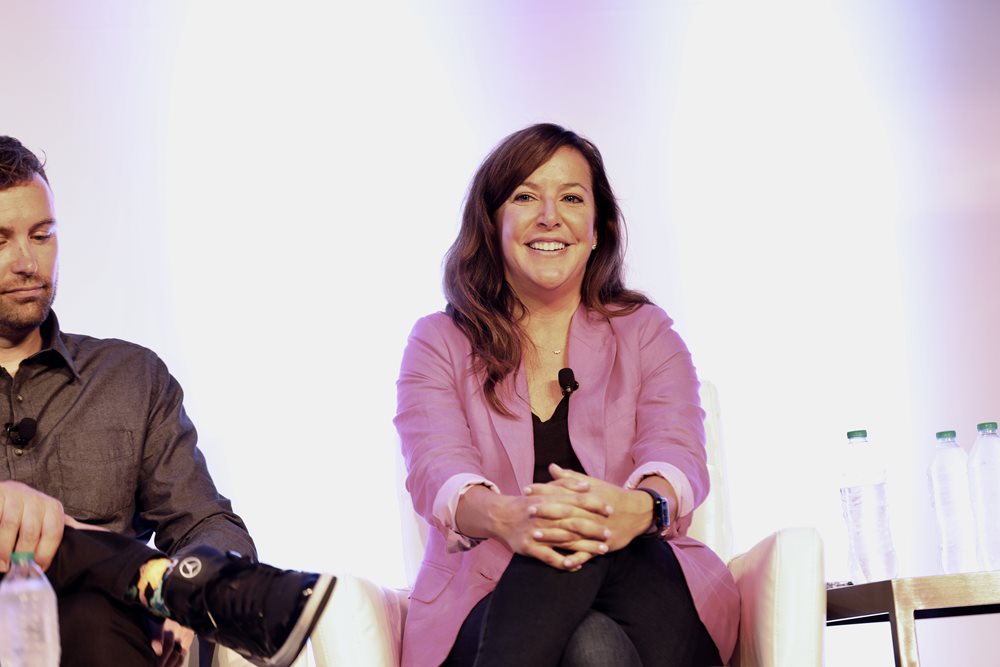While it’s still “all in for innovation and emerging brands” Kroger has had to shift its priorities in the interest of maintaining adequate inventory amid supply chain disruptions, said Holly Adrien (pictured above), natural and organic strategy and innovation manager at The Kroger Co., during the session Supply Chain Crisis: Coping Mechanisms From the Field, at the Summer Fancy Food Show, Monday.
“We slowed down innovation,” she said when reflecting back on the last two years. “We all did. There are still some categories hit hard where we’re slowing innovation and being cautious, but other categories we have more of a comfort level with.”
Adrien noted that in some cases, the company has been able to pivot its strategy and avoid disruptions thanks to the transparency of its suppliers.
“One of our major player brands told us very early on, we’re not going to be able to keep up,” she said. “It was transparent and that allowed us to bring in another brand, but that other player is still very much in the game with us due to its transparency and we’re very much looking forward to the future.”
Dwight Richmond, director of center store for Town & Country said that in many cases during the pandemic and beyond, the retailer was able to source products from different brands to keep shelves stocked.
“Many of these brands were sticky and remain sticky,” he said. “Consumers still have a sense of loyalty to these companies that could give them a sense of security and keep food in the pantry and on the shelf.”
Karen Van Schaack, vice president of sales for Source Atlantique noted that many specialty brands eagerly filled a dearth in 2020.
“During the height of the pandemic amid supply chain issues more consumers came into specialty food, so they may have bought our D'Arbo [Fruit Spread] when they couldn’t find Smucker’s,” said Van Schaack. With cost pressures on the rise, she’s not confident that these shopping behaviors are sustainable.
“I’m worried about the future with inflation and gas prices over $5 per gallon in most states. Discretionary income is shrinking. Will consumers still pay over $1 more for that jam? We need to educate the consumer on why they need these better for your products or why you should treat yourself when times are tough.”
Richmond likewise noted that retailers need to hunker down for the next wave of disruptions.
"Inflation didn't just happen due to rising gas prices, in started in 2020 and it'll be here for awhile. As retailers we can begin to prepare for the second wave of eating at home and the beauty of what SFA and it's Summer Show does is all about us as retailers honing in and bringing back things that will be able to fill the needs of consumers who are trading out of restaurants and cooking back at home and maintaining some sort of specialty in their life."
Related: Brand Experts Share Marketing Hacks for Small Makers; Panelists: Walmart Endeavors to Lead in Innovation.

